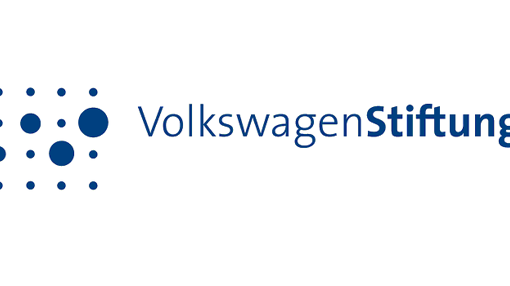Stefan Kuhlmann is emeritus professor of Science, Technology and Society (STS) at the University of Twente (UT) at the Department Technology, Policy, Society (TPS) and the section Science, Technology, and Policy Studies (STəPS). He was Academic Director of WTMC, the Dutch Graduate Research School Science, Technology, and Modern Culture (2018-2021).
Stefan Kuhlmann works on research and technological innovation as social and political processes, focusing on governance and politics, and he publishes widely in the field of research and innovation policy studies (publication profile on Google Scholar).
Before joining the University of Twente Stefan Kuhlmann held leading positions at the Fraunhofer Institute for Systems and Innovation Research, Germany (1988-2006) and was Professor of Innovation Policy at the Copernicus Institute, University of Utrecht (2001-2006). In the 1980s he was researcher at the University of Kassel, with a focus on the digitalisation of public administration (Forschungsgruppe Verwaltungsautomation, 1979-1988).
Stefan was an editor of Research Policy (Elsevier) 2005-2020. He is an associate editor of the Int. J. of Foresight and Innovation Policy (IJFIP) and is on the boards of Science and Public Policy, of Asian Research Policy, of the journal Evaluation, of European Journal of Futures Research, of Zeitschrift für Evaluation and of Forschung.
Books include The Theory and Practice of Innovation Policy. An International Research Handbook (2010, with R. Smits & P. Shapira); Navigating Towards Shared Responsibility in Research and Innovation(2016, with R. Lindner et al.); Research Handbook on Innovation Governance for Emerging Economies: Towards Better Models (2017, with G. Ordonez); Handbook on Science and Public Policy (2019, with D. Simon, J. Stamm, W. Canzler).
See Stefan's video on the mission of the UT department STəPS.
See Stefan Kuhlmann’s personal website.
Expertise
Computer Science
- Innovations
Social Sciences
- Governance
- Science
- Research
- Policy
- Diplomacy
- Approach
- Evaluation
Organisations
Stefan Kuhlmann publishes widely in the field of research, technology and innovation policy studies.
Publications
Jump to: 2026 | 2025 | 2024 | 2023 | 2022 | 2021
2026
2025
2024
2023
2022
2021
Other contributions
Kuhlmann, S. & Ordóñez-Matamoros, G. (2017), Research Handbook on Innovation Governance for Emerging Economies - Towards Better Models, Cheltenham, UK (Edward Elgar)
Lindner, R., Kuhlmann, S., et al. (2016): Navigating Towards Shared Responsibility in Research and Innovation. Approach, Process and Results of the Res-AGorA Project. Karlsruhe/D (Fraunhofer ISI)
Smits, R.; Kuhlmann, S. & Shapira, P., The Theory and Practice of Innovation Policy - An International Research Handbook, Cheltenham, UK (Edward Elgar), 2010/12 (ebook)
Shapira, Ph., Kuhlmann, S. (eds.) (2003): Learning from Science and Technology Policy Evaluation: Experiences from the United States and Europe, Cheltenham (E. Elgar), ISBN 1-84064-875-9 (e-book) (Chinese translation)
Research profiles
Courses academic year 2025/2026
Courses in the current academic year are added at the moment they are finalised in the Osiris system. Therefore it is possible that the list is not yet complete for the whole academic year.
Courses academic year 2024/2025
For more than 40 years Stefan Kuhlmann has been involved in studies of research and technological innovation as social and political processes – with changing entrance points and perspectives. Since the late 1980s he has analysed science, research and innovation systems and public policies, focusing on the dynamics of governance. He has led or has been involved in numerous international collaborative research projects and networks.
Recent research projects are listed below (selection).
Current projects
Finished projects
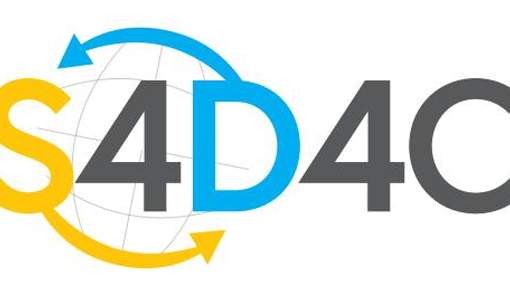
“Using science for/in diplomacy for addressing global challenges (S4D4C)”
EU Horizon 2020 funded project, grant n° 770342, Jan 2018 – Dec 2020
S4D4C aims to support current and future European science diplomacy for the benefit of European capacities, EU foreign policy goals and especially the development of solutions for global challenges. This includes the EU’s commitment to the United Nation’s Sustainable Development Goals (SDGs), which have an important science, technology and innovation component. Project partners: Centre for Social Innovation GmbH (coordinator); International Bureau of the BMBF at DLR, Germany; Charles University Prague, Czech Republic; German Centre for Higher Education Research and Science Studies; UNESCO/TWAS, France/Italy; University of Sheffield, UK; Spanish Foundation for Science and Technology, Spain; University Lille II, France; Vienna School of International Studies, Austria.
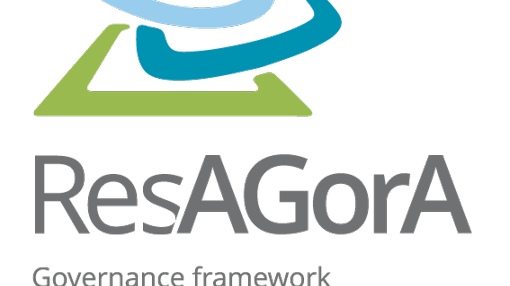
Res-AGorA
Responsible Research and Innovation in a Distributed Anticipatory Governance Frame. A Constructive Socio-normative Approach
The EU FP7 funded project (2012-16) contained three core empirical elements: • A series of case studies examining in depth existing responsibility governance across technological domains • A systematic country monitoring disseminated through a web portal • A number of co-constructive workshops bringing together key stakeholders Through this co-constructive approach the Res-AGorA project has built a robust framework acknowledging different values and world views while actively supporting the participation of stakeholders and the general public in constructive engagement in problem solving at macro and micro levels: the Res-AGorA “Responsibility Navigator”. Res-AGorA had of 8 European partners from universities and offices for science and technology: Fraunhofer Institute for Systems and Innovation Research (D); Universiteit Twente (NL); Universita degli studi di Padova (I); Danish Board of Technology Foundation (DK); Institut für höhere Studien und wissenschaftliche Forschung (A); University of Manchester (UK); Université de Marne La Vallee (F); Aarhus University (DK).
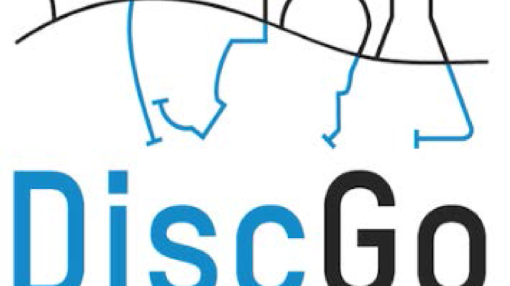
Governance of Discontinuation of Sociotechnical Systems
DiscGo, funded by NWO-ORA (2012-15)
This project aimed at a better understanding of the governance of the abandonment of socio-technical systems. It asked what discontinuation means as a problem of action for policy-makers. So far, the governance of socio-technical systems has preferentially been associated with advancement and innovation. Discontinuation of socio-technical systems is, at most, discussed as regime change, innovation setback or failure—as if advancement and innovation was the only direction in which socio-technical development and governance would go. The DiscGo research consortium consisted of research groups at the University of Sussex, Brighton (United Kingdom), the TU Dortmund University (Germany), the Unité Science en Société (SenS) at the Institut Francilien Recherche Innovation Société, IFRIS, Paris (France) and the University of Twente, Enschede (The Netherlands). The UT based group is coordinating the consortium.
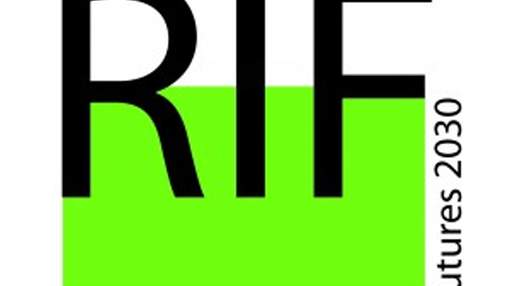
Research and Innovation Futures 2030: From explorative to transformative scenarios
RIF 2030, EU FP7 (2011-13)
The RIF project aimed to a) systematize knowledge on emerging patterns, trends and drivers of change in ways of doing and organising research in our knowledge societies, b) provide an outlook on future pathways for STI systems and practices by way of scenarios, c) assess and identify key issues of the scenarios against the background of the emerging European Research Area, and) to establish a dialogue on future perspectives for STI in order to identify strategic options and opportunities for action. RIF focused on the dynamics of change resulting from the interplay of developments inside and outside of STI systems. It is based on the assumption that current trends will give rise to certain tensions and dilemmas which may be resolved within the constraints of current institutional settings, or else through substantial transformation of STI systems and practices. The project started with a comprehensive stocktaking of European and international forward-looking activities, and an analysis of academic literature on emerging new modes of doing and organising research. This served as the basis for a two-stage interactive scenario process. At first explorative scenarios with a time horizon of 2020 were developed based on exploration of current trends and drivers within the constraints of today’s STI framework. These scenarios pointed towards key critical junctures in ways of doing and organising research. The second phase generated long-term transformative scenarios towards 2030 that may incorporate significant structural and institutional changes in STI systems and practices. In a series of tailored interactive workshops the scenarios’ implications for key policy objectives were assessed and strategic options for different actors and stakeholders explored. RIF relied on extensive stakeholder interaction, using both face-to-face formats and Web 2.0 tools. A range of dissemination activities ensured a widespread debate of RIF findings by stakeholders. RIF 2030 partners were: AIT Austrian Institute of Technology; University of Twente; Manchester University; VTT Finland
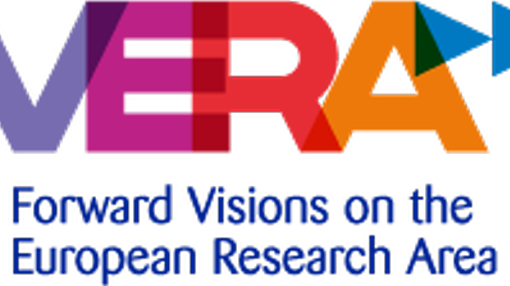
Visions for the European Research Area
VERA, EU FP7 (2012-15)
The VERA project aimed to provide relevant strategic intelligence for the future governance and priority-setting of the research, technology, development and innovation (RTDI) system in Europe and for better adapting science, technology and innovation policy to the shifting global environment and upcoming socio-economic challenges. For this purpose VERA carried out an in-depth stocktaking of RTDI related forward looking activities in Europe and internationally and a thorough review of trends and drivers of long-term change of European RTDI governance. On the base of these insights VERA developed scenarios on the evolution of the European Research Area, assesses the critical issues for the ERA’s future capabilities emerging from these scenarios, explores subsequent strategic options and ultimately generates a set of policy recommendations for responsive and future oriented multi-level, multi-domain RTDI policy strategies. VERA was conceptualised as a continuously progressing two-way communication process among ERA actor groups from society, industry, academia and policy across domains, levels and regions. It has set up a strategic conversation between these stakeholders that evolves through several carefully tailored stages in order to jointly discover shared visions and strategic options around the ERA’s future perspectives towards 2020 and far beyond. VERA explored the gradual evolution following from current patterns of change but also explicitly embraced transformative and disruptive developments with a long term perspective. VERA partners were: Fraunhofer Institute for Systems and Innovation Research, Germany (Coordinator); Executive Agency for Higher Education, Research, Development and Innovation Funding (UEFISCDI), Romania; University of Twente; IFRIS - Institute on Research, Innovation and Society, France; Austrian Institute of Technology (AIT), Austria; University of Manchester, Manchester Institute of Innovation Research, UK; VTT Technical Research Centre of Finland; INGENIO (CSIC-UPV) - Institute of Innovation and Knowledge Management, Spain; EC Joint Research Centre - Institute for Prospective Technological Studies (JRC-IPTS); Centre for Social Innovation (ZSI), Austria.
Address
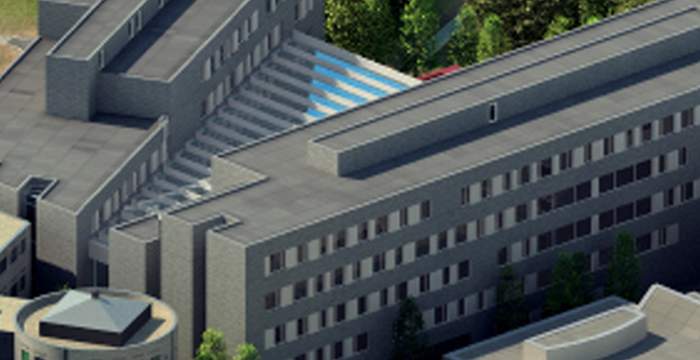
University of Twente
Ravelijn (building no. 10), room 4410
Hallenweg 17
7522 NH Enschede
Netherlands
University of Twente
Ravelijn 4410
P.O. Box 217
7500 AE Enschede
Netherlands
